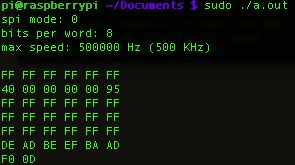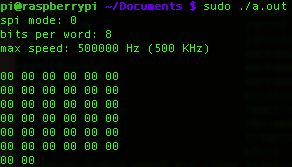- SenseVoice 部署记录
安静六角
开源软件
最近试用了SenseVoice(阿里团队开源的语音转文字)效果可以,可以本地部署,有webui界面,测试了万字以上的转换效果可以。首先部署好conda环境和cuda,这个可以查看他人的文章。步骤1.创建虚拟环境:condacreate-nmainenvpython=3.102.然后安装依赖condaactivatemainenvpipinstall-rC:\Users\xx\Documents\P
- rocketmq-client 4.3.0 在springboot中的使用
Myueye
JAVAjava
rocketmq-client4.3.0在springboot中的使用1、导入依赖2、配置文件属性3、编写配置类4、使用测试5、结果5.1RocketMQ后台显示5.2前端页面5.3后端后台1、导入依赖org.apache.rocketmqrocketmq-client4.3.02、配置文件属性mq.nameserverAdd=ip地址:9876mq.topic=top1(topic名称)mq.p
- 聊聊langchain4j的HTTP Client
langchain4j
序本文主要研究一下langchain4j的HTTPClientlangchain4j-http-clientlangchain4j提供了langchain4j-http-client模块,它实现了一个HttpClientSPI(服务提供者接口),其他模块通过该接口调用LLM提供商的RESTAPI。这意味着底层HTTP客户端可以被自定义,通过实现HttpClientSPI,还可以集成任何其他HTTP
- Linux中的 mutex [二] —— 乐观自旋机制
jianchi88
内核同步Linux稳定性android服务器linuxubuntu
本文基于5.4.86版本内核mutex可视作是spinlock的可睡眠版本,同样是线程无法继续向前执行,但spinlock是"spin",导致该CPU上无法发生线程切换,而mutex是"block"(我们通常翻译成「阻塞」),可以发生线程切换,让所在CPU上的其他线程继续执行。阻塞既可以发生在线程试图获取mutex时,也可以发生在线程持有mutex时。现在的mutex机制,要从这几方面纬度理解:o
- 技术大佬和普通程序员改bug的区别!
程序员干货站
大数据编程语言java人工智能数据分析
阅读本文大概需要2min文/强哥;未经授权禁止转载在我这么多年的工作生涯里,难免遇到那些工作糊弄的开发同事,随意编程的实习生,不够细致的测试,缺乏专业度的产品...产品的体验,取决于多个环节的把控,但很多情况下,由于bug严重影响体验,或者直接造成产品事故的,那么开发想甩锅都甩不掉!今天就给大家从几方面讲讲,经验丰富的程序员,是怎么debug的!1、并不是所有bug都需要修复修bug有个前提,那就
- 最新智能优化算法: 贪婪个体优化算法(Greedy Man Optimization Algorithm,GMOA)求解23个经典函数测试集,MATLAB代码
IT猿手
MATLAB智能优化算法算法matlab开发语言人工智能智能优化算法
一、贪婪个体优化算法贪婪个体优化算法(GreedyManOptimizationAlgorithm,GMOA)是HamedNozari与HosseinAbdi于2024年提出的一种新型受生物启发的元启发式算法,它模拟了抵抗变化的竞争个体的行为。GMOA引入了两个独特的机制:MMO抵抗机制,防止过早替换解;周期性寄生虫清除机制,促进多样性并避免停滞。该算法旨在解决传统优化算法中的过早收敛和缺乏多样性
- 2025最新智能优化算法:改进型雪雁算法(Improved Snow Geese Algorithm, ISGA)求解23个经典函数测试集
荣华富贵8
程序员的知识储备1程序员的知识储备2程序员的知识储备3经验分享
摘要随着智能优化算法的不断发展,解决高维、复杂的优化问题已成为研究的重要课题。雪雁算法(SnowGeeseAlgorithm,SGA)作为一种新兴的自然启发式优化算法,以其高效的全局搜索能力受到了广泛关注。然而,雪雁算法在处理多峰、多约束和高维复杂问题时,仍面临收敛速度较慢和易陷入局部最优解的问题。为此,本文提出了一种改进型雪雁算法(ISGA),通过引入自适应权重调整机制和混合局部搜索策略,增强了
- 华为OD机试统一考试D卷C卷 - 机器人仓库搬砖 py
愤怒的小青春
java
平安寿险北分和飞鹤职能哪个强度好一些呀,平安寿险北分和飞鹤职能哪个强度好一些呀,两个offer纠结经营分析应该属于什么序列#数据分析#在牛客搜经营分析貌似只有字节有这个单独岗位名字,其他大厂都是在从属于数据分析,所以这俩昇腾计算岗位扩招,绝佳上车AI机会,速来ai芯片业务发展太快,要大量补充人力缺口。嵌入式软件开发、测试,前后端岗位,硬件岗位都招。院校范围很春招补录两个公司总包差不多,都是后台开发
- 前端性能优化-知识点
甲亿
前端性能优化
Web性能优化意义1.减少整体加载时间:减小文件体积、减少HTTP请求、使用预加载。2.使网站尽快可用:仅加载首屏内容,其他内容根据需要进行懒加载。3.平滑和交互性:使用CSS替代JS动画、减少UI重绘。4.加载表现形式:使用加载动画、进度条、骨架屏等过渡信息,让用户感觉到页面加载更快。5.性能监测:性能指标、性能测试、性能监控持续优化等Web性能指标RAIL性能模型Response(响应):快速
- Linux内核同步机制之(八):mutex
ikt4435
程序员编程Java架构javaspringmysql
一、Mutex锁简介在linux内核中,互斥量(mutex,即mutualexclusion)是一种保证串行化的睡眠锁机制。和spinlock的语义类似,都是允许一个执行线索进入临界区,不同的是当无法获得锁的时候,spinlock原地自旋,而mutex则是选择挂起当前线程,进入阻塞状态。正因为如此,mutex无法在中断上下文使用。和mutex更类似的机制(无法获得锁时都会阻塞)是binarysem
- 【网络安全 | 漏洞挖掘】通过控制台调试实现登录
秋说
web安全漏洞挖掘
未经许可,不得转载。文章目录正文在安全测试过程中,我留意到一个特殊现象:当登录出现错误时,相关请求包并不经过BurpSuite。那么此时账号密码是储存在前端的,我通过调试即可实现登录管理员账户。正文由于系统设定,输入错误的账号和密码会弹出“账号密码错误”的提示。基于此,我在代码中“账号密码错误”提示的相关位置设置了断点,截图如下:随后,我刷新浏览器页面,输入错误的账号和密码,然后点击登录按钮,操作
- 聊聊langchain4j的HTTP Client
hello_ejb3
httpiphone网络协议
序本文主要研究一下langchain4j的HTTPClientlangchain4j-http-clientlangchain4j提供了langchain4j-http-client模块,它实现了一个HttpClientSPI(服务提供者接口),其他模块通过该接口调用LLM提供商的RESTAPI。这意味着底层HTTP客户端可以被自定义,通过实现HttpClientSPI,还可以集成任何其他HTTP
- L2-050懂蛇语c++(pta天梯赛。测试点1。)
zzy678
c++
这个题目看上去还挺简单的,但是自己做的时候就超时了一开始只有19分。我自己stl学的不是很好,然后一开始自己用的pair和vector一起写的发现了一些小问题改了之后才得19。。。其中两个就是超时问题。可能查找太慢?之后又查看了一些别人写的,参考了使用map和vector混用的方法就很好过了,但是那个测试点1就是过不了。最后,我发现就是首字的处理方式应该优化。一个小小小坑。大家注意。#includ
- autojs之乐旅商城自动报名自动约
恶猫
javascript前端开发语言autojs安卓脚本
之前用的。现在能不能用不知道了啊。自己测试吧。//一键亮屏device.wakeUp();device.wakeUpIfNeeded();sleep(1000);//滑开swipe(device.width/2,device.height*0.8,device.width/2,device.height*0.1,2000);sleep(2000);//一键开微信launchApp("微信");sl
- 第十八章:模板的多态力量_《C++ Templates》notes
郭涤生
c/c++c++开发语言笔记
模板的多态力量一、动态多态vs静态多态二、奇异递归模板模式(CRTP)三、策略模式(编译期策略选择)关键要点总结第一部分:多选题(10题)第二部分:设计题(5题)答案与详解多选题答案:设计题参考答案1.编译期策略选择器2.类型安全访问者模式3.概念约束数学库4.编译期工厂模式5.静态多态容器测试说明一、动态多态vs静态多态核心概念:动态多态:基于虚函数和继承体系,函数调用在运行时决定(通过虚函数表
- 图像质量评价学习笔记02:IQA模型性能评价指标(PLCC、SROCC、KROCC、RMSE)
可靠的豆包蟹同志
图像质量评估IQA图像处理计算机视觉人工智能算法
性能好的图像质量评价(IQA)算法,其质量评测分数会与主观质量分数高度一致,IQA有许多评价指标,为了衡量方法测试结果与主观评价之间的一致性,视频质量专家组VQEG(VideoQualityExpertsGroup,目前国际上对视频质量进行标准化及性能测试的权威组织)提出了四个可以验证客观评价结果和主观评价结果之间的紧密程度的四个指标:PLCC、SROCC、KROCC和RMSE,也是目前最常用的I
- 吐槽一下VIVO手机限制adb连接
zhentongf
智能手机adb
我按照下面的教程试了,但依然不可以连接vivo手机的adb。我看下面的教程是2020年的,我猜vivo已经修复了普通用户可以通过选择MIDI设备之后连接adb的bug了。我想vivo就是不想让普通用户连上adb。另外我还测试了无线调试。连接WiFi后,依然连接不上。作为对比,小米手机就轻松连上了。192.168.0.110即为小米手机,端口5555解决VIVO手机开启USB调试仍不能连接ADB_v
- 先验地图--slam学习笔记
超级璐璐
人工智能机器学习
先验信息(PriorInformation)先验信息指的是在收集新数据之前已有的知识或假设。这种信息可以来自之前的实验、历史数据、理论模型或专家意见。地图信息:在无人驾驶中,车辆通常会预先加载高精度地图数据,这些地图数据提供了道路布局、车道线位置、交叉口结构等信息。这些信息就是先验信息。车辆动力学模型:车辆的动力学模型,包括车辆的物理特性(如质量、轮胎摩擦系数等),这些模型可以帮助预测车辆的行为。
- linux脚本怎么访问http,如何使用现有的tcp连接从bash脚本访问http服务器?
玲珑阁玉韦
linux脚本怎么访问http
在bashshellscipt中,我使用几个命令行工具(wget,curl,httpie)来测试我的http服务器.当使用例如curl调用GET请求,我看到tcp连接打开到我的服务器并在http通信完成后立即关闭.$curlhttp://10.5.1.1/favicon.ico-o/dev/null为了更好地测试我的服务器的保持活动行为,我想在多个http请求/响应周期中保持tcp连接打开.我可以
- 在manjaro中开启多VLAN,配置永久静态IP,使用systemd-networkd配置
SunJavaApplet
Linuxmanjarovlan
网络交换机给接入口配置的Trunk口,可以接入多个VLAN,安装好系统后不能上网。这里使用systemd-networkd进行配置,也可以利用iproute2或netctl配置。打开终端输入ipaddr查看网络状况1:lo:mtu65536qdiscnoqueuestateUNKNOWNgroupdefaultqlen1000link/loopback00:00:00:00:00:00brd00:
- conda将python低版本环境升级到高版本
dkgee
condapython开发语言
conda将python低版本环境3.7.16升级到高版本3.81.激活你的Conda环境2.升级Python版本3.验证升级4.处理依赖问题5.测试环境注意事项可以将Conda环境中的Python版本从3.7.16升级到3.8。以下是具体步骤:1.激活你的Conda环境首先,你需要激活你想要升级Python版本的环境。假设你的环境名为myenv,你可以使用以下命令激活它:condaactivat
- 探秘知乎数据抓取神器 —— zhihu-spider
丁慧湘Gwynne
探秘知乎数据抓取神器——zhihu-spider项目地址:https://gitcode.com/gh_mirrors/zh/zhihu-spider在知识的海洋中畅游,每一份数据都可能成为智慧的火花。今天,我们来一起探索一个专为知乎设计的数据爬虫工具——zhihu-spider,它是由计算机科学研究生MorganZhang精心打造的开源宝藏。项目介绍zhihu-spider,正如其名,是一个针对
- 11.网络编程的基础知识
就很对
网络linux
11.网络编程的基础知识**1.OSI模型与TCP/IP模型****2.IP地址分类****3.Socket编程****4.TCP三次握手与四次挥手****5.常用网络测试工具****6.练习与作业****7.总结**1.OSI模型与TCP/IP模型OSI模型(开放系统互联模型):7层结构:应用层:为网络用户提供各种服务(如HTTP、FTP)。表示层:数据加密解密、压缩解压缩。会话层:管理进程会话
- RK3588开发笔记-buildroot添加telnet服务
flypig哗啦啦
RK3588buildrootbusybox
目录前言一、Telnet服务背景与适用场景二、telnet服务开启Busybox配置三、固件编译及烧录RK3588烧录验证客户端连接测试3.1Linux/MacOS连接3.2Windows连接总结前言本文主要介绍在RK3588SDK文件包中添加telnet服务,由于sdkbuildroot默认添加的是ssh服务,如用户需要主动开启telnet,则需要另外在busybox中开启telnetd服务,下
- 第十六章:Specialization and Overloading_《C++ Templates》notes
郭涤生
c/c++c++开发语言笔记
SpecializationandOverloading一、模板特化与重载的核心概念二、代码实战与测试用例三、关键知识点总结四、进阶技巧五、实践建议多选题设计题代码测试说明一、模板特化与重载的核心概念函数模板重载(FunctionTemplateOverloading)//基础模板templateTmax(Ta,Tb){returna>b?a:b;}//显式特化(FullSpecializatio
- Linux——Linux系统编程之基于TFTP实现服务器与开发板间的文件传输实战总结
Winter_world
Linux系统TFTP服务器搭建TFTP文件传输
目录0引言1TFTP服务器搭建1.1TFTP基础1.2Ubuntu搭建TFTP服务器1.3测试TFTP服务器2开发板实现TFTP文件传输2.1同一网段2.2配置2.3客户端与服务器的通信0引言我们前面总结的Linux字符设备、串口编程博文中,在虚拟机中编译得到可执行文件后,都是通过U盘连接开发板进行测试验证的,或者就是把可执行文件编译到最小系统中,再OTG烧写进开发板,这两种方法都比较麻烦,这里我
- LabVIEW实现LoRa通信
不脱发的程序猿
LabVIEW物联网开发实战labview
目录1、LoRa通信原理2、硬件环境部署3、程序架构4、前面板设计5、程序框图设计6、测试验证本专栏以LabVIEW为开发平台,讲解物联网通信组网原理与开发方法,覆盖RS232、TCP、MQTT、蓝牙、Wi-Fi、NB-IoT等协议。结合实际案例,展示如何利用LabVIEW和常用模块实现物联网系统的快速开发与原型设计,助你从基础到实战,全面掌握物联网开发技能。开源免费LabVIEW学习专栏分享:L
- *如何在 Mac 上安装 macOS Sequoia 开发测试版*
Topstip
macos
在WWDC主题演讲中,Apple概述了今年秋季会推出的macOSSequoia版本的新功能。它的亮点包括iPhone镜像、专门的密码应用,以及适用于M1及更高型号的AppleIntelligence功能。Apple现在发布了macOSSequoia的第一个开发者测试版。虽然操作系统更新要到今年秋季才会公开发布,但现在测试版让用户可以立即安装并运行预发布版本。(甚至不需要是Apple开发者)本文就教
- 多个单片机之间的SPI主从通讯
菜长江
单片机嵌入式硬件
工程文件链接:链接:https://pan.baidu.com/s/1RXp9lw2ZqyglQSwKnw7Siw?pwd=6666提取码:6666工程里面有很多例子都是看B站视频手打的(这次代码只用到了YJSPI文件夹下面的.C和.H文件其余可以忽略),只是验证通讯和配置一,概述1.因为工作是从事PCBA测试软件开发的(上位机),之前做过的很多项目都是一个单片机完成所有功能,做了有段时间了无非就
- Ubuntu18.04之网络配置+域名配置+软件源配置+ssh免密登陆
那记忆微凉
Linux
网络配置ubuntu18.04网络配置较之前版本有较大改动,它弃用了/etc/networks/interface配置,真正的网络配置是在/etc/netplan/xxx.yaml中生效查看当前系统网口连结状态,使用ipa查看对应网口,如果状态不是down而是up,则选择改网口进行配置编辑/etc/netplan/xxx.yaml#注意,如果每个配置后面有内容,则:号后面需加一个空格,再加入自己的
- 如何用ruby来写hadoop的mapreduce并生成jar包
wudixiaotie
mapreduce
ruby来写hadoop的mapreduce,我用的方法是rubydoop。怎么配置环境呢:
1.安装rvm:
不说了 网上有
2.安装ruby:
由于我以前是做ruby的,所以习惯性的先安装了ruby,起码调试起来比jruby快多了。
3.安装jruby:
rvm install jruby然后等待安
- java编程思想 -- 访问控制权限
百合不是茶
java访问控制权限单例模式
访问权限是java中一个比较中要的知识点,它规定者什么方法可以访问,什么不可以访问
一:包访问权限;
自定义包:
package com.wj.control;
//包
public class Demo {
//定义一个无参的方法
public void DemoPackage(){
System.out.println("调用
- [生物与医学]请审慎食用小龙虾
comsci
生物
现在的餐馆里面出售的小龙虾,有一些是在野外捕捉的,这些小龙虾身体里面可能带有某些病毒和细菌,人食用以后可能会导致一些疾病,严重的甚至会死亡.....
所以,参加聚餐的时候,最好不要点小龙虾...就吃养殖的猪肉,牛肉,羊肉和鱼,等动物蛋白质
- org.apache.jasper.JasperException: Unable to compile class for JSP:
商人shang
maven2.2jdk1.8
环境: jdk1.8 maven tomcat7-maven-plugin 2.0
原因: tomcat7-maven-plugin 2.0 不知吃 jdk 1.8,换成 tomcat7-maven-plugin 2.2就行,即
<plugin>
- 你的垃圾你处理掉了吗?GC
oloz
GC
前序:本人菜鸟,此文研究学习来自网络,各位牛牛多指教
1.垃圾收集算法的核心思想
Java语言建立了垃圾收集机制,用以跟踪正在使用的对象和发现并回收不再使用(引用)的对象。该机制可以有效防范动态内存分配中可能发生的两个危险:因内存垃圾过多而引发的内存耗尽,以及不恰当的内存释放所造成的内存非法引用。
垃圾收集算法的核心思想是:对虚拟机可用内存空间,即堆空间中的对象进行识别
- shiro 和 SESSSION
杨白白
shiro
shiro 在web项目里默认使用的是web容器提供的session,也就是说shiro使用的session是web容器产生的,并不是自己产生的,在用于非web环境时可用其他来源代替。在web工程启动的时候它就和容器绑定在了一起,这是通过web.xml里面的shiroFilter实现的。通过session.getSession()方法会在浏览器cokkice产生JESSIONID,当关闭浏览器,此
- 移动互联网终端 淘宝客如何实现盈利
小桔子
移動客戶端淘客淘寶App
2012年淘宝联盟平台为站长和淘宝客带来的分成收入突破30亿元,同比增长100%。而来自移动端的分成达1亿元,其中美丽说、蘑菇街、果库、口袋购物等App运营商分成近5000万元。 可以看出,虽然目前阶段PC端对于淘客而言仍旧是盈利的大头,但移动端已经呈现出爆发之势。而且这个势头将随着智能终端(手机,平板)的加速普及而更加迅猛
- wordpress小工具制作
aichenglong
wordpress小工具
wordpress 使用侧边栏的小工具,很方便调整页面结构
小工具的制作过程
1 在自己的主题文件中新建一个文件夹(如widget),在文件夹中创建一个php(AWP_posts-category.php)
小工具是一个类,想侧边栏一样,还得使用代码注册,他才可以再后台使用,基本的代码一层不变
<?php
class AWP_Post_Category extends WP_Wi
- JS微信分享
AILIKES
js
// 所有功能必须包含在 WeixinApi.ready 中进行
WeixinApi.ready(function(Api) {
// 微信分享的数据
var wxData = {
&nb
- 封装探讨
百合不是茶
JAVA面向对象 封装
//封装 属性 方法 将某些东西包装在一起,通过创建对象或使用静态的方法来调用,称为封装;封装其实就是有选择性地公开或隐藏某些信息,它解决了数据的安全性问题,增加代码的可读性和可维护性
在 Aname类中申明三个属性,将其封装在一个类中:通过对象来调用
例如 1:
//属性 将其设为私有
姓名 name 可以公开
- jquery radio/checkbox change事件不能触发的问题
bijian1013
JavaScriptjquery
我想让radio来控制当前我选择的是机动车还是特种车,如下所示:
<html>
<head>
<script src="http://ajax.googleapis.com/ajax/libs/jquery/1.7.1/jquery.min.js" type="text/javascript"><
- AngularJS中安全性措施
bijian1013
JavaScriptAngularJS安全性XSRFJSON漏洞
在使用web应用中,安全性是应该首要考虑的一个问题。AngularJS提供了一些辅助机制,用来防护来自两个常见攻击方向的网络攻击。
一.JSON漏洞
当使用一个GET请求获取JSON数组信息的时候(尤其是当这一信息非常敏感,
- [Maven学习笔记九]Maven发布web项目
bit1129
maven
基于Maven的web项目的标准项目结构
user-project
user-core
user-service
user-web
src
- 【Hive七】Hive用户自定义聚合函数(UDAF)
bit1129
hive
用户自定义聚合函数,用户提供的多个入参通过聚合计算(求和、求最大值、求最小值)得到一个聚合计算结果的函数。
问题:UDF也可以提供输入多个参数然后输出一个结果的运算,比如加法运算add(3,5),add这个UDF需要实现UDF的evaluate方法,那么UDF和UDAF的实质分别究竟是什么?
Double evaluate(Double a, Double b)
- 通过 nginx-lua 给 Nginx 增加 OAuth 支持
ronin47
前言:我们使用Nginx的Lua中间件建立了OAuth2认证和授权层。如果你也有此打算,阅读下面的文档,实现自动化并获得收益。SeatGeek 在过去几年中取得了发展,我们已经积累了不少针对各种任务的不同管理接口。我们通常为新的展示需求创建新模块,比如我们自己的博客、图表等。我们还定期开发内部工具来处理诸如部署、可视化操作及事件处理等事务。在处理这些事务中,我们使用了几个不同的接口来认证:
&n
- 利用tomcat-redis-session-manager做session同步时自定义类对象属性保存不上的解决方法
bsr1983
session
在利用tomcat-redis-session-manager做session同步时,遇到了在session保存一个自定义对象时,修改该对象中的某个属性,session未进行序列化,属性没有被存储到redis中。 在 tomcat-redis-session-manager的github上有如下说明: Session Change Tracking
As noted in the &qu
- 《代码大全》表驱动法-Table Driven Approach-1
bylijinnan
java算法
关于Table Driven Approach的一篇非常好的文章:
http://www.codeproject.com/Articles/42732/Table-driven-Approach
package com.ljn.base;
import java.util.Random;
public class TableDriven {
public
- Sybase封锁原理
chicony
Sybase
昨天在操作Sybase IQ12.7时意外操作造成了数据库表锁定,不能删除被锁定表数据也不能往其中写入数据。由于着急往该表抽入数据,因此立马着手解决该表的解锁问题。 无奈此前没有接触过Sybase IQ12.7这套数据库产品,加之当时已属于下班时间无法求助于支持人员支持,因此只有借助搜索引擎强大的
- java异常处理机制
CrazyMizzz
java
java异常关键字有以下几个,分别为 try catch final throw throws
他们的定义分别为
try: Opening exception-handling statement.
catch: Captures the exception.
finally: Runs its code before terminating
- hive 数据插入DML语法汇总
daizj
hiveDML数据插入
Hive的数据插入DML语法汇总1、Loading files into tables语法:1) LOAD DATA [LOCAL] INPATH 'filepath' [OVERWRITE] INTO TABLE tablename [PARTITION (partcol1=val1, partcol2=val2 ...)]解释:1)、上面命令执行环境为hive客户端环境下: hive>l
- 工厂设计模式
dcj3sjt126com
设计模式
使用设计模式是促进最佳实践和良好设计的好办法。设计模式可以提供针对常见的编程问题的灵活的解决方案。 工厂模式
工厂模式(Factory)允许你在代码执行时实例化对象。它之所以被称为工厂模式是因为它负责“生产”对象。工厂方法的参数是你要生成的对象对应的类名称。
Example #1 调用工厂方法(带参数)
<?phpclass Example{
- mysql字符串查找函数
dcj3sjt126com
mysql
FIND_IN_SET(str,strlist)
假如字符串str 在由N 子链组成的字符串列表strlist 中,则返回值的范围在1到 N 之间。一个字符串列表就是一个由一些被‘,’符号分开的自链组成的字符串。如果第一个参数是一个常数字符串,而第二个是type SET列,则 FIND_IN_SET() 函数被优化,使用比特计算。如果str不在strlist 或st
- jvm内存管理
easterfly
jvm
一、JVM堆内存的划分
分为年轻代和年老代。年轻代又分为三部分:一个eden,两个survivor。
工作过程是这样的:e区空间满了后,执行minor gc,存活下来的对象放入s0, 对s0仍会进行minor gc,存活下来的的对象放入s1中,对s1同样执行minor gc,依旧存活的对象就放入年老代中;
年老代满了之后会执行major gc,这个是stop the word模式,执行
- CentOS-6.3安装配置JDK-8
gengzg
centos
JAVA_HOME=/usr/java/jdk1.8.0_45
JRE_HOME=/usr/java/jdk1.8.0_45/jre
PATH=$PATH:$JAVA_HOME/bin:$JRE_HOME/bin
CLASSPATH=.:$JAVA_HOME/lib/dt.jar:$JAVA_HOME/lib/tools.jar:$JRE_HOME/lib
export JAVA_HOME
- 【转】关于web路径的获取方法
huangyc1210
Web路径
假定你的web application 名称为news,你在浏览器中输入请求路径: http://localhost:8080/news/main/list.jsp 则执行下面向行代码后打印出如下结果: 1、 System.out.println(request.getContextPath()); //可返回站点的根路径。也就是项
- php里获取第一个中文首字母并排序
远去的渡口
数据结构PHP
很久没来更新博客了,还是觉得工作需要多总结的好。今天来更新一个自己认为比较有成就的问题吧。 最近在做储值结算,需求里结算首页需要按门店的首字母A-Z排序。我的数据结构原本是这样的:
Array
(
[0] => Array
(
[sid] => 2885842
[recetcstoredpay] =&g
- java内部类
hm4123660
java内部类匿名内部类成员内部类方法内部类
在Java中,可以将一个类定义在另一个类里面或者一个方法里面,这样的类称为内部类。内部类仍然是一个独立的类,在编译之后内部类会被编译成独立的.class文件,但是前面冠以外部类的类名和$符号。内部类可以间接解决多继承问题,可以使用内部类继承一个类,外部类继承一个类,实现多继承。
&nb
- Caused by: java.lang.IncompatibleClassChangeError: class org.hibernate.cfg.Exten
zhb8015
maven pom.xml关于hibernate的配置和异常信息如下,查了好多资料,问题还是没有解决。只知道是包冲突,就是不知道是哪个包....遇到这个问题的分享下是怎么解决的。。
maven pom:
<dependency>
<groupId>org.hibernate</groupId>
<ar
- Spark 性能相关参数配置详解-任务调度篇
Stark_Summer
sparkcachecpu任务调度yarn
随着Spark的逐渐成熟完善, 越来越多的可配置参数被添加到Spark中来, 本文试图通过阐述这其中部分参数的工作原理和配置思路, 和大家一起探讨一下如何根据实际场合对Spark进行配置优化。
由于篇幅较长,所以在这里分篇组织,如果要看最新完整的网页版内容,可以戳这里:http://spark-config.readthedocs.org/,主要是便
- css3滤镜
wangkeheng
htmlcss
经常看到一些网站的底部有一些灰色的图标,鼠标移入的时候会变亮,开始以为是js操作src或者bg呢,搜索了一下,发现了一个更好的方法:通过css3的滤镜方法。
html代码:
<a href='' class='icon'><img src='utv.jpg' /></a>
css代码:
.icon{-webkit-filter: graysc

